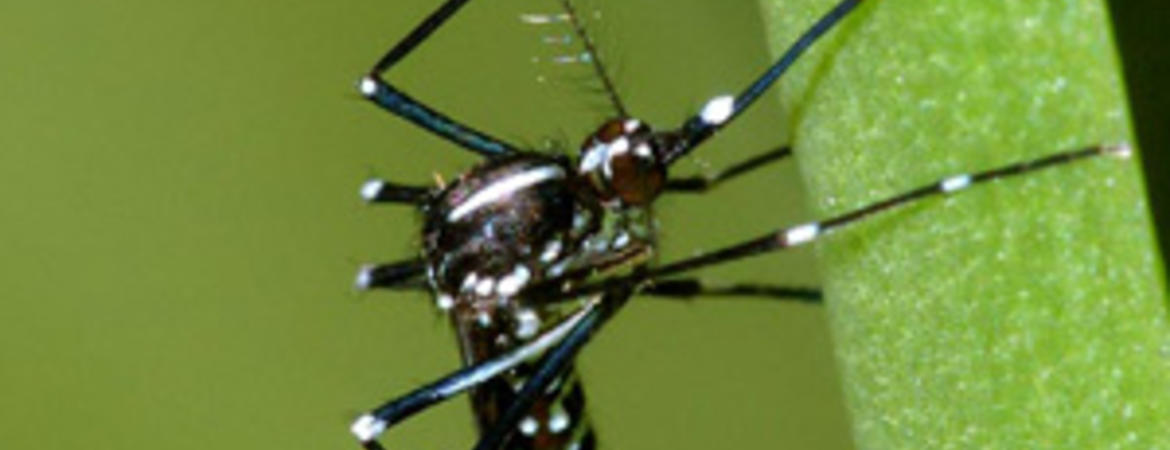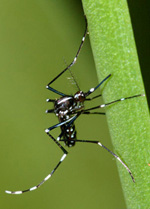
In September 2011, Asian Tiger Mosquito (Aedes albopictus) was found in Southern California. Small pockets of communities were reporting extremely aggressive, daytime biting mosquitoes – a telltale sign of the Asian Tiger Mosquito. The Asian Tiger Mosquito was first found in isolated pockets of California in the early 1970’s. It was eradicated, but showed up again in the late 80’s and again in the early 2000’s. This time, the potential vector-carrying mosquito was reported in the city of El Monte, about 10 miles East of Los Angeles.
In response, two LA based agencies worked together to inform the public about its new mosquito resident and to determine the extent of its establishment in the area. The Greater Los Angeles County Vector Control District (GLACVCD) and the San Gabriel Valley Mosquito & Vector Control District (SGVMVCD) cooperatively began surveying a 20 square mile grid of homes in El Monte. Officials knocked on doors to inform residents of the new pest, and asked for permission to check each property for potential breeding grounds around their homes.
Truc Dever, Director of Community Affairs and Steven Vetrone, Assistant Vector Ecologist are two officials from GLACVD who participated in the sweep in El Monte.
“If the Asian tiger mosquito becomes established here in LA County, it would be a game changer for all of us. Residents would need to be concerned about disease-transmitting mosquitoes biting them during the day,” Dever said.
Dever and Vetrone participated in a 20 square mile grid by knocking on doors in a South El Monte neighborhood. They had two primary goals: help increase the public’s awareness of the Asian Tiger Mosquito and check for areas that could provide a breeding ground. They walked around with the home owners to point out potential problems. Each pool of standing water was carefully examined for larva and eggs, and a few samples were taken back to the lab for further examinations.
The Asian Tiger Mosquito differs from other mosquito’s in that it is an aggressive day time biter. It can also carry a number of vectors like dengue, yellow fever and west nile virus. Breeding grounds can include anything that holds standing water. Trash can lids turned upside down proved a popular culprit, as well as water trays under garden pots. Even some unsuspecting plants that hold water on their leaves were potential candidates for mosquito eggs.
“We need the public’s help in order to control and eradicate this dangerous pest. We are asking everyone to call us if they are getting bitten by mosquitoes during the day.” Dever said.
For more information on the Asian Tiger Mosquito, visit the CISR page
Los Angeles officials are asking residents to call and report if they see any black and white mosquitoes that bit during the day. Please contact the Greater Los Angeles County Vector Control District at (562) 944-9656 (www.glacvcd.org) or the San Gabriel Valley Mosquito & Vector Control District at (626) 814-9466 (www.SGVmosquito.org)
